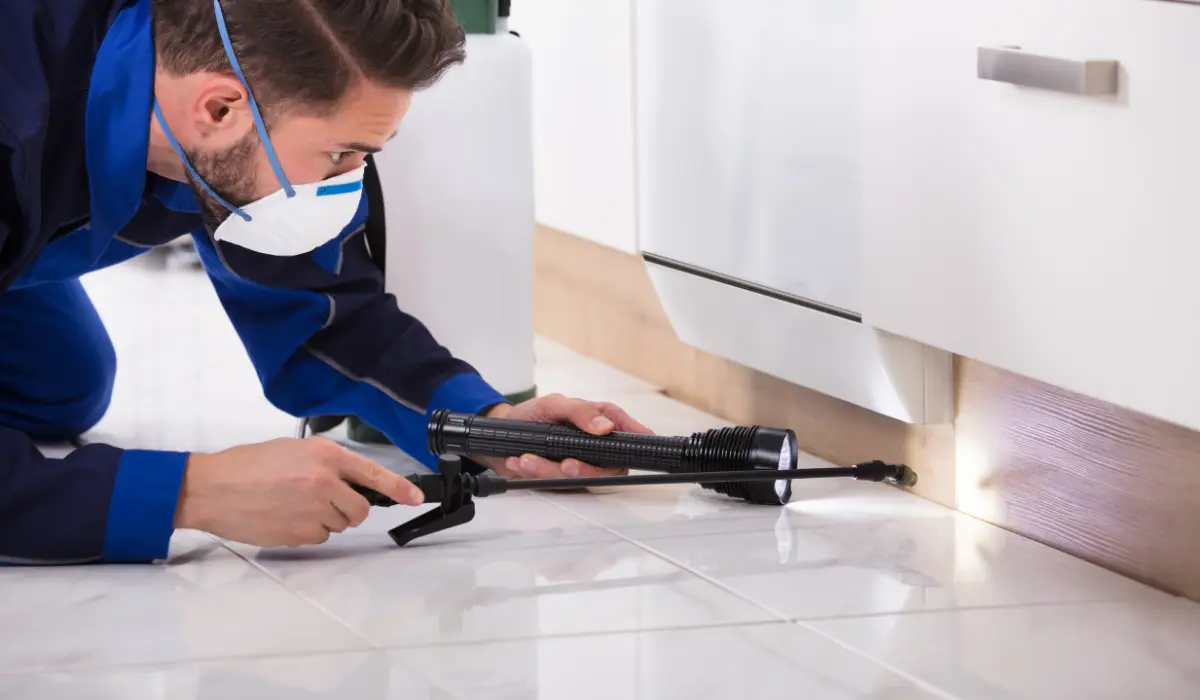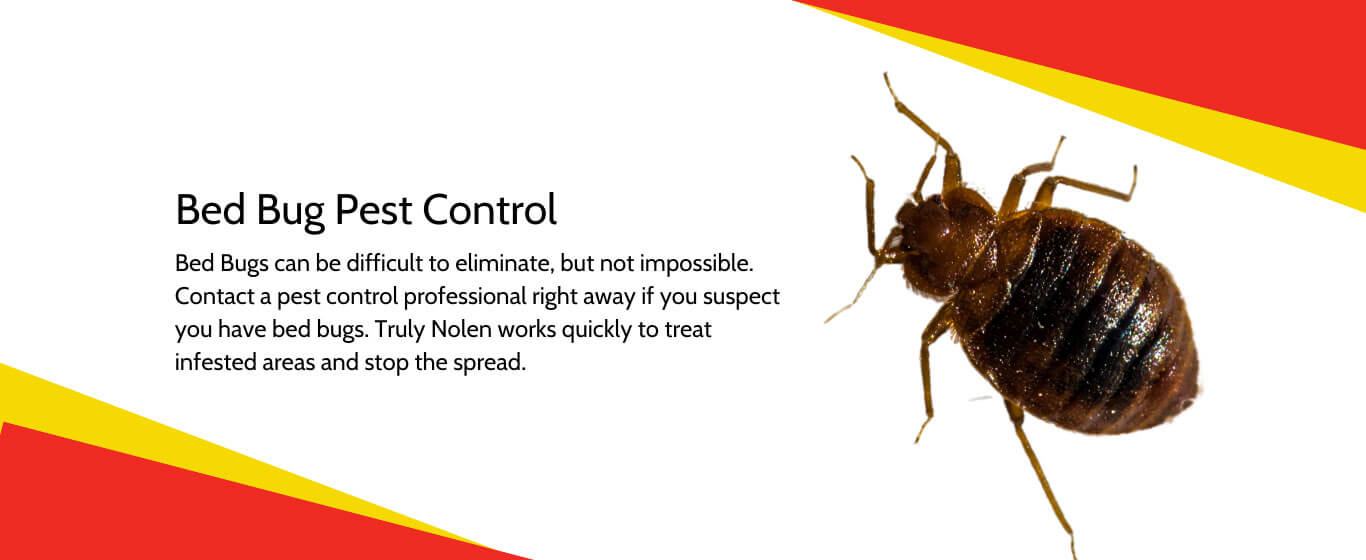Safe and Reliable Parasite Control for Lasting Protection
Effective pest monitoring requires a complex strategy that stabilizes eco-friendly integrity with the demand for effective bug reductions. The nuances of these methods might not be immediately clear, motivating a closer assessment of the practices that can lead to lasting insect control results.
Comprehending Pest Control Methods
Pest control incorporates a variety of approaches focused on handling and eliminating undesirable pests and rats that can threaten both wellness and property. Comprehending these methods is essential for effective parasite administration.
The key groups of parasite control approaches include mechanical, biological, and chemical approaches. Mechanical techniques entail physical obstacles and catches to stop parasite entrance and capture undesirable species. Making use of displays on windows or employing sticky catches can dramatically decrease bug populaces without introducing damaging substances - exterminator coquitlam.

Chemical bug control is typically one of the most identified technique, utilizing pesticides to get rid of parasites. These chemicals can be reliable but must be used with caution to prevent negative effects on non-target types and the atmosphere.
Advantages of Eco-Friendly Solutions
Just how can eco-friendly remedies change pest control practices? The adoption of green insect control methods uses various advantages, dramatically boosting the effectiveness and safety and security of pest administration.

An additional benefit is the positive effect on neighborhood biodiversity. Environmentally friendly options are designed to target details parasites while protecting advantageous insects and wildlife, promoting a well balanced community. This method aligns with the growing consumer demand for lasting methods, boosting the track record of insect control companies.
Integrated Bug Administration Approaches
The implementation of environment-friendly remedies naturally results in the fostering of Integrated Bug Management (IPM) methods, which further enhance parasite control efficiency. IPM is an all natural approach that incorporates multiple strategies to take care of pest populations while reducing environmental influence. This technique stresses using organic, cultural, mechanical, and chemical controls, making sure a well balanced and sustainable approach of insect administration.
One fundamental element of IPM is the thorough evaluation of parasite task and environmental conditions. By monitoring insect populaces and recognizing their life process, practitioners can execute targeted interventions that interfere with the parasite's environment or lifecycle, reducing reliance on chemical pesticides. Additionally, social techniques such as plant rotation and habitat manipulation can significantly decrease pest establishment and reproduction.
One more essential part is making use of organic control agents, such as advantageous insects or bacteria, which can normally reduce insect populations. When chemical applications are needed, IPM focuses on making use of low-risk chemicals and applies them precisely, lessening exposure to non-target microorganisms and human beings.
Integrating IPM approaches not only enhances pest control efficiency but also promotes a more secure ecological community, straightening with the expanding need for sustainable methods in bug administration.
Safe Practices for House Owners
Recognizing the significance of secure practices in bug control can roach exterminator encourage homeowners to efficiently manage wasp insect issues while guarding their health and wellness and the environment. Applying safe approaches and safety nets is critical in minimizing direct exposure to hazardous chemicals.
House owners ought to first examine their environment for conditions that bring in insects, such as standing food, water, and clutter waste. Routinely cleansing and sealing entry factors can hinder parasites from invading the home. Using all-natural deterrents, such as crucial oils or diatomaceous earth, can provide efficient alternatives to chemical pesticides.
When chemical therapies are essential, property owners should select products that are specifically identified as secure for domestic usage. It is necessary to adhere to application standards meticulously to avoid overexposure. Moreover, making use of targeted treatments in locations where insects are determined, instead of covering spraying, can substantially reduce chemical use.
Lastly, keeping open interaction with bug control specialists is crucial. Home owners ought to make inquiries about the safety of products used and request environmentally friendly options whenever possible. By adopting these secure techniques, house owners can create a much healthier living environment while properly taking care of pest issues.

Tips for Long-Term Protection
Developing a bug management approach that highlights long-lasting protection can substantially improve the efficiency of the secure methods formerly see here talked about. To attain this, property owners must apply regular inspections of their residential or commercial property, focusing on concealed areas such as attics, basements, and crawl rooms. Early detection of bug activity is essential in avoiding invasions from holding.
These practices decrease attractants that draw insects right into the home. Sealing access factors, such as splits around home windows and doors, can successfully block potential bug gain access to.
Landscaping ought to additionally be taken into consideration; keeping plants trimmed and preserving a distance between plants and the home lessens hiding areas for bugs. Making use of all-natural deterrents, such as vital oils or diatomaceous planet, can better dissuade infestations without turning to harsh chemicals.
Lastly, working together with a specialist parasite control solution for regular examinations can give an extra layer of safety. These experts can use tailored suggestions and advanced treatments, guaranteeing that your home continues to be shielded versus pests in the long-term.
Final Thought
Finally, secure and reliable insect control requires a diverse technique that emphasizes eco-friendly approaches and integrated insect administration. By applying natural deterrents, performing normal assessments, and preserving correct hygiene, homeowner can significantly lower bug populaces while shielding helpful bugs and the environment. Partnership with professional parasite control services improves the performance of these strategies, ensuring tailored remedies that offer long-term security and comfort against future infestations.
Effective parasite administration calls for a multifaceted approach that stabilizes ecological stability with the need for efficient bug suppression. The adoption of environment-friendly insect control methods offers many benefits, dramatically improving the performance and safety and security of bug management.The implementation of environment-friendly services naturally leads to the adoption of Integrated Pest Administration (IPM) strategies, which further boost pest control effectiveness. exterminator coquitlam. By monitoring insect populations and recognizing their life cycles, experts can apply targeted treatments that interfere with the bug's habitat or lifecycle, minimizing dependence on chemical pesticides.In final thought, dependable and risk-free insect control needs a complex technique that emphasizes environmentally friendly approaches and incorporated parasite monitoring